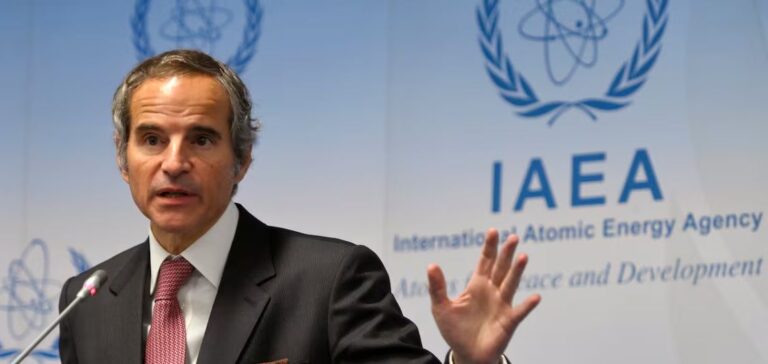Rafael Mariano Grossi, the Director-General of the International Atomic Energy Agency (IAEA), has visited Niger on a mission aimed at strengthening nuclear cooperation between the IAEA and the country. Niger, one of the world’s largest uranium producers, plays a key role in the nuclear sector. This visit comes amid a complex political context, marked by a military regime in power following a coup in 2023. Mr. Grossi met with Ali Mahaman Lamine Zeine, the Prime Minister of the Nigerien government, to discuss ways to deepen cooperation in nuclear energy and peaceful uses of the technology.
Strengthened cooperation in a tense political context
During his meeting with Nigerien authorities, Mr. Grossi emphasized the importance of maintaining a close relationship with Niger in the nuclear sector, particularly concerning the safety and security of installations. The country, which provides about 5% of the world’s uranium production, plays a crucial role in global supply, especially for nuclear power plants. The IAEA Director-General’s visit also highlighted the imperative of ensuring the continuity of the IAEA’s commitment, despite the political upheavals in the region.
Tensions surrounding uranium extraction
Niger, which holds some of the world’s largest uranium deposits, is in open conflict with several foreign companies, including the French group Orano. The group is involved in the operation of the Somaïr mine, one of the country’s largest uranium sites, but relations have deteriorated due to decisions made by the Nigerien government. Specifically, the military regime withdrew Orano’s operating license for the Imouraren site, one of the largest uranium deposits in the world. This development has exacerbated tensions between Niger and Orano, which has lost control of several major mining sites. At the same time, the French group has pursued legal actions to recover the uranium quantities blocked at the Somaïr site, estimated to be worth 250 million euros.
Visit to infrastructure and IAEA technical support
Beyond political and economic discussions, Rafael Mariano Grossi also visited infrastructure related to the peaceful use of nuclear technology. He visited Niamey to inspect a radiotherapy center built with IAEA technical and financial support. This cancer radiotherapy center is part of the IAEA’s efforts to promote the use of nuclear energy in the medical field, particularly in developing countries where healthcare needs are urgent.
Impact on global uranium supply
The tensions between the Nigerien government and Orano have direct repercussions on the global uranium market. Niger is a major supplier of this strategic resource, and any political or economic upheaval in the country can have consequences on prices and the supply to the global nuclear industry. These tensions also highlight the growing challenge faced by foreign companies operating natural resources in countries with unstable political regimes and strengthened sovereign policies. The current situation has led Niger to explore new partnerships with other international actors, including Russia and Iran, although these steps are surrounded by political caution.






















